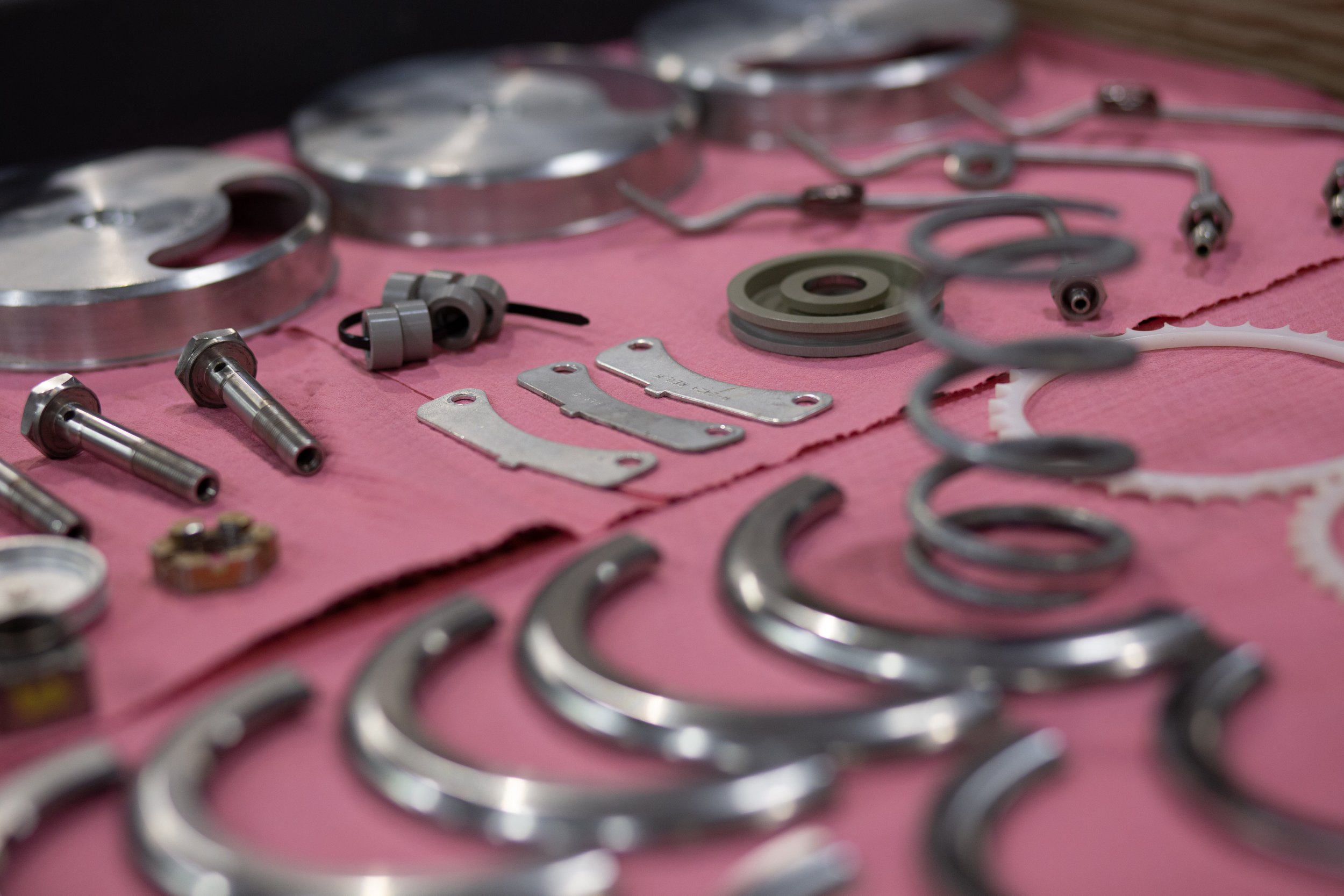
SERVICES
Over 45 Years of Service and Repair Expertise.
Memphis Propeller offers a full menu of component services for propellers,
starter-generators, blower motors and other items.
-
Housed in an enclosed area of our service center built expressly for its purpose, Memphis Propeller conducts extensive Non-Destructive Testing on propellers, starter components, housing units and other components to seek out microscopic cracks or flaws that might otherwise be invisible to the naked eye.
Using special fluorescent liquid penetrant and UV-A lighting, eddy current, and magnetic particle inspection, we analyze your parts without breaking them down or subjecting them to further stress. The result is a savings of both time and money.
-
In harsh environments, including aeronautics, Cadmium has no equal for lubricity, corrosion resistance, low electrical contact resistance, rust prevention and luster – creating protection for the steel and iron components of your propeller. While looking good!
Memphis Propeller conducts this type of plating in a safe, atmosphere-controlled setting to provide our customers with the ultimate in protection and beauty.
-
Your propeller or starter is a mechanical component. Sometimes mechanical components don’t always operate flawlessly. If your propeller or starter still has significant time left before overhaul, a reseal or repair could be a more economical option. When we perform a reseal or repair, we do only what is necessary to correct the issue at hand as cost effectively as possible.
Common issues that can occur may include: grease or oil leakage, blade looseness, internal component failure or malfunction, seal or gasket wear, Teflon® wear, or blade surface wear, blade airfoil damage, or electrical issues, etc.
Reseals include a complete disassembly, visual inspection, and replacement of all seals, o-rings, gasket, and one-time use hardware items.
Repairs address only the problem causing item(s) and may or may not involve propeller disassembly. For example, blade
-
(A.D. NOTE) COMPLIANCE
As time passes, manufacturers occasionally find issues with propellers and starters and components they manufacture that can affect the safety of their products. When this occurs, the manufacturer typically works together with the F.A.A. to come up with a resolution. This resolution comes out in the form of an Airworthiness Directive or A.D. Note. Memphis Propeller can comply with any and all A.D.s that may apply to your propeller.
-
From time to time, you may have a question or concern regarding your component. If you think you may have an issue, give us a call and we will do our best to get to the bottom of your problem. Many issues can be resolved over the phone without having to even remove your component.
-
Every manufacturer, engineer, and technically adept person who understands the effects of loading and aerodynamic forces appreciate the value of a overhaul.
As a propeller or starter performs its functions, incredible forces are exerting themselves. These forces act in such a way that they are literally trying to pull the component or piece apart. The propeller and starter are designed to handle these forces safely but factors such as corrosion, fatigue, cracking, wear, and malfunction can compromise structural integrity – sometimes with catastrophic results.
Component overhaul ensures that your equipment is flying safely. Overhauls are very labor intensive and the most painstaking care is given.
Here are a few of the many things that occur during a typical overhaul:
Complete disassembly down to the most fundamental components.
Assemblies and subassemblies are taken completely apart.
Finishes such as paint and plating are removed exposing the “base” metal.
Aluminum components such as blades, hubs, retention nuts, fan covers, etc. are dye penetrant and eddy current inspected.
Steel components are magnetic particle inspected.
All critical components are dimensionally measured within thousandths of an inch.
Blades are reworked to remove oxidation, nicks, corrosion, etc.
Each blade is balanced with each of the other blades in the propeller and all are “matched”, both weight wise and dimensionally.
Any wear or damage is reworked and repaired.
All steel parts are replated and the aluminum components are alodined and painted.
All seals, gaskets, o-rings, and one time use hardware such as mounting nuts, studs, and bolts are replaced with new.
The component is then reassembled, tested, and master balanced before being returned to service.
Overhaul is a critical part of your aircraft maintenance program.



